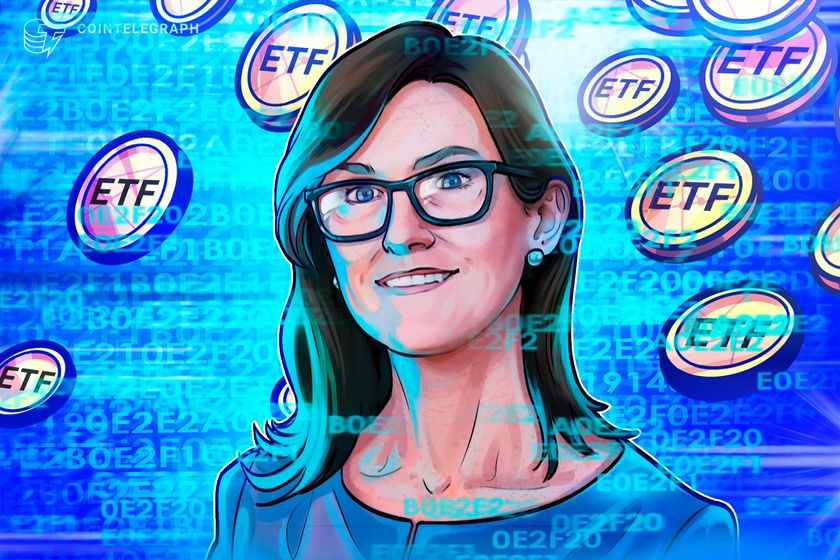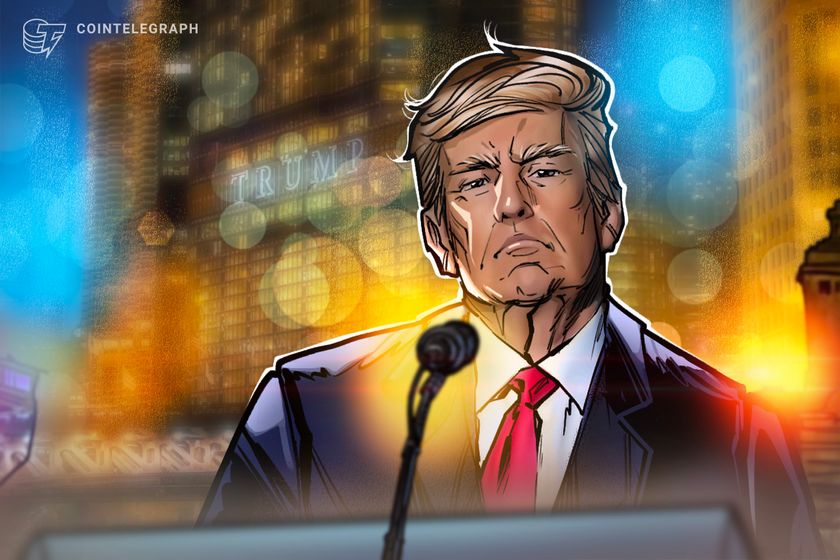Here’s what happened in crypto today

Today in crypto, Arizona Governor Katie Hobbs rejected bills to establish a state Bitcoin reserve and accept crypto payments, but signed a bill regulating crypto ATMs, Coinbase is set to become the first crypto company to join the S&P 500 index, and newly appointed US Securities and Exchange Commission (SEC) Chair Paul Atkins shared his priorities for digital asset regulation.
Arizona governor kills two crypto bills, cracks down on Bitcoin ATMs
Arizona Governor Katie Hobbs vetoed two key cryptocurrency-related bills that aimed to expand the state’s involvement in digital assets while signing a strict regulatory measure targeting Bitcoin ATMs.
On May 12, Hobbs rejected Senate Bill 1373, which sought to establish a Digital Assets Strategic Reserve Fund. The fund would have allowed Arizona to hold crypto assets obtained through seizures or legislative allocations.
“Current volatility in cryptocurrency markets does not make a prudent fit for general fund dollars,” she stated in her veto letter. “I have already signed legislation this session which allows the state to utilize cryptocurrency without placing general fund dollars at risk,” she added.
That decision followed her veto of Senate Bill 1025 — the more ambitious “Arizona Strategic Bitcoin Reserve Act” — on May 3. It would have authorized up to 10% of the state’s treasury and retirement funds to be invested in Bitcoin and other digital assets.
According to data from bitcoinlaws.io, 26 US states have introduced strategic crypto reserve bills, with 18 of them currently active.
Hobbs also vetoed Senate Bill 1024, which would have permitted state agencies to accept cryptocurrency payments for taxes, fines and fees via approved service providers.
Coinbase to become the first crypto firm to join the S&P 500
Crypto exchange Coinbase Global (COIN) is set to join the Standard and Poor’s 500 (S&P 500) on May 19, becoming the first and currently only crypto firm to make it into the index.
The crypto exchange will replace Discover Financial Services (DFS), which was recently acquired by Capital One Financial Corp (COF), S&P Global said on May 12.
The S&P 500 is a stock market index that tracks the performance of 500 of the largest, publicly traded companies in the US, representing a broad measure of the overall US stock market.
Coinbase’s inclusion in the S&P 500 should increase demand for its stock because index funds and exchange-traded funds that track the S&P 500 must buy COIN shares to mirror the index.
COIN shares immediately rose 8.8% to $225.4 in after-hours trading following the announcement, Google Finance data shows. The company also finished the March 12 trading day up 4%, bringing its market cap to $52.8 billion.
SEC chair: Blockchain “holds promise” of new kinds of market activity
Blockchain technology could enable “a broad swath of novel use cases for securities” and foster “new kinds of market activities that many of the Commission’s legacy rules and regulations do not contemplate today,” Securities and Exchange Commission (SEC) Chairman Paul Atkins said.
During his keynote address at the Commission’s May 12 roundtable on tokenization and digital assets, Atkins welcomed “a new day at the SEC,” adding that “policymaking will no longer result from ad hoc enforcement actions. Instead, the Commission will utilize its existing rulemaking, interpretive, and exemptive authorities to set fit-for-purpose standards for market participants.”
A key priority will be to “develop a rational regulatory framework for crypto asset markets that establishes clear rules of the road for the issuance, custody, and trading of crypto assets while continuing to discourage bad actors from violating the law.”
In particular, Atkins said the SEC would focus on establishing “clear and sensible guidelines” for crypto assets that could be considered securities. Another area of focus would be to allow brokers to offer a broader range of investment products on their platforms, which in some cases may mix securities and non-securities.
Atkins’ approach moves away from former SEC Chair Gary Gensler’s, whose tenure was criticized by some industry participants for its “regulation by enforcement” method of oversight.







